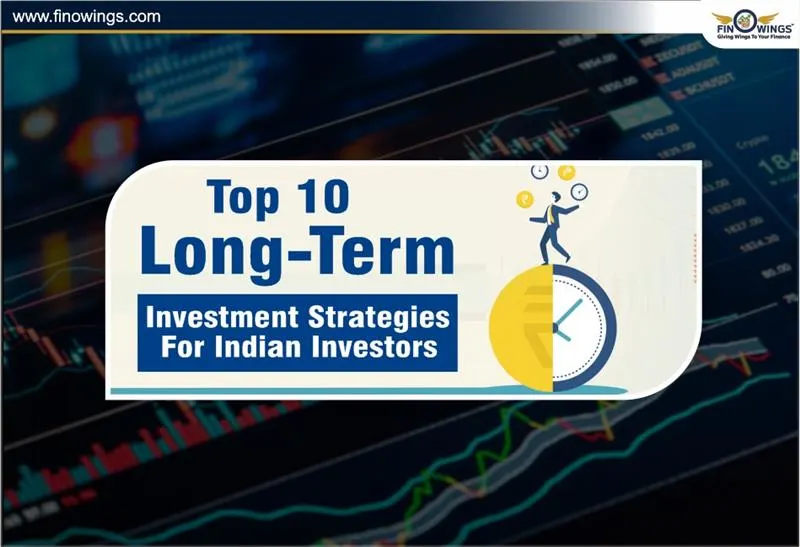Home >> Blog >> How to invest in startups and unlisted companies in India?
How to invest in startups and unlisted companies in India?

Table of Contents
Unlisted private company shares offer tremendous opportunities for growth and exposure, but they also carry the risk of laxer regulations. Shares listed on the stock market are safeguarded by the Securities and Exchange Board of India's (SEBI) frequent oversight and rules. Investing in unlisted firms is a difficult but doable task. When you choose these options, all you need is an eye for detail. It's not as difficult as you might think. If these elevated opportunities catch your eye, this article will go into more detail about the unlisted companies.
What is an unlisted company?
The term "unlisted company" refers to businesses that are privately held and aren't listed on any stock exchange. They cannot raise money because they are not listed. They are starting to invest in capital. The trading of shares takes place "over the counter," where the parties may specify the terms of the agreement as they see fit. This prevents the exchange of control. Entities that are not publicly traded have more managerial authority.
How to invest in unlisted companies?
Here are a few well-known ways that an investor can invest in some of India's top unlisted companies.
Invest in new and emerging businesses
-
Any company in the pre-IPO stage that is not yet listed will eventually plan to go public. In these circumstances, even though the transaction may be off-the-record and there is no exchange involved, the returns from your investment in their stocks will be sent directly to your Demat account.
-
However, one should exercise caution when trading in unlisted stocks and seek the assistance of a professional to help them manage the transactions successfully and minimize risks.
-
Start-up companies are yet another advantageous choice when trading in unlisted stocks. These businesses may be small and under the radar of the market, but they have the potential to expand in the future and earn you money.
-
Through various middlemen, such as investment companies, who provide you with a platform to facilitate the trade of unlisted company shares, you can purchase unlisted shares. This approach involves purchasing shares from employees via employee stock options (ESOPs).
-
Once these company shares are traded publicly, their price may increase, enabling you to make money. There is a catch with this scenario, though! You are not allowed to sell these shares before six months have passed from the date of listing under Indian Pre-IPO market investing laws.
Personal Placements
-
Another option is to speak with a broker, wealth manager, or investment bank who can assist you in finding the price and valuing an unlisted company.
-
As a result, you can purchase a portion of their company shares. Promoters can be acquired through private placements.
AIF and PMS Plans
-
Portfolio Management Systems (PMS) can also be used to invest in unlisted companies. By adjusting the weights of various securities in a portfolio by market sentiment, these customized share portfolios can help you diversify your risk.
-
Investors can also focus their money on unlisted companies by using Alternative Investment Funds (AIFs). Keep your thoughts straight. Extremely rich individuals (HNIs) and significant institutional investors have contributed capital to AIFs by using them as pooled investment vehicles. While the AIF requires a minimum investment of 1 crore for the AIF, the PMS only requires a minimum investment of 50 lakhs.
Pre-IPO capital
-
In the same way that mutual funds operate, so does this strategy. Numerous wealth management firms offer a wide range of funds that invest entirely in recently listed companies as well as upcoming initial public offerings (IPOs).
-
This is a good choice for retail investors who don't have a lot of capital but still want to invest in unlisted businesses that are focused on growth.
Risks involved with an unlisted company
Major risks, including the following, come with investing in unlisted companies:
Risk of Liquidity
The shares cannot be purchased or sold when you want them to because of the high minimum investment amounts and the lack of often transacting individuals. This makes investments in scarcely traded shares.
Financial Loss
Investments in an unlisted company come with an additional risk of capital loss because these companies are not well regulated and may knowingly engage in unethical behavior that, if discovered, could result in the loss of all invested funds.
Dividends Risk
Investors who own shares of an unlisted company before the record date and on the Ex-dividend date are paid dividends in regulated markets. Surprisingly, however, unlisted companies do not have the concept of structured dividend delivery. As a result, they might decide not to give you any dividends at all.
Lock-in Period
If you hold shares of an unlisted company in the hopes that the price will increase once it is listed, but sadly, things don't work out, and the share price keeps dropping. Can you withdraw your investment?
Without a doubt! As per regulatory requirements, you must hold the shares for the upcoming six months, as per the previously mentioned fact.
Taxation guidelines
Short-erm Capital Gains: Short-term capital gains laws apply to gains from an investment in unlisted firm shares if they are sold within 24 months. Gains from this enhance your income, which is then taxed collectively based on the tax rate you are in.
Long-Term Capital Gains: After the indexation benefit, the gains from an investment in shares of an unlisted company will be taxed at 20% if they are sold within 24 months. The effect of the rate of inflation on it is used to adjust the purchase price of shares under this.
However, if the price of unlisted firm shares falls below the Fair Market Value (FMV), a term known to unlisted companies, the price taken into consideration for taxation will not be its trading price.
It would rather have a licensed investment bank evaluate what it is worth.
Risk of Diluting
It is said that you own 50% of a company if you own 50 of the 100 shares, but what if there are 50 more shares issued by the company? Since we assume you didn't subscribe for these additional 50 shares, your ownership percentage drops from the previously calculated 50% to 33.33% as a result of the change in the total number of shares from 150 to 150.
Conclusion
You might believe that investing in these businesses entails a great deal of risk due to their exposure to high volatility, lack of or insufficient price discovery platforms, illiquidity, and lock-in periods. But why not view it as a learning experience and an adventure? You might as well keep your money and share in their success stories rather than risk losing it.
Author
Frequently Asked Questions
Unlisted equity shares are those of a company that has not yet been listed on a stock exchange, such as the BSE, NSE, MSEI, etc.
- Genuine valuations Unlisted/Pre IPO securities typically trade at a discount to their listed counterparts, resulting in higher returns.
- Preferred Access Invest in businesses that aren't otherwise accessible to retail investors by using venture capital and private equity funds.
- Diversification Gain access to markets that aren't currently represented in the listed sectors or regions (e.g., startup space, CSK, etc.).
Six months is the bare minimum lock-in period that applies after buying unlisted company shares.
The minimum purchase amount can range from Rs.20,000 to Rs.50,000, depending on the stock
Depending on the company and the stage of development it is in, the time frame varies. The typical investment horizon for unlisted company shares is 2 to 5 years. If the company does not submit an IPO application, the investor may sell the shares on the active grey market.



.webp)












